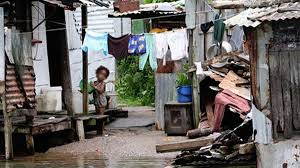Fiji’s Minister for Women, Children, and Social Protection, Lynda Tabuya, has called for urgent and collective action to tackle the social and institutional maltreatment that perpetuates poverty.
Speaking on the International Day for the Eradication of Poverty, Tabuya highlighted the need for Fiji and the world to address both visible and hidden dimensions of poverty.
“We can’t turn a blind eye to the injustice that so many people face. Poverty is not just about lack of money—it’s about deprivation of dignity, human rights, and opportunities,” Tabuya said in her address.
“Today, we stand together with those who suffer from extreme poverty, and we say, ‘enough is enough.’”
This year’s theme, “Ending Social and Institutional Maltreatment: Acting Together for Just, Peaceful, and Inclusive Societies,” focuses on how systemic inequalities often fuel the cycle of poverty.
“Poverty isn’t just about hunger or homelessness. It’s also about the institutions and systems that keep people marginalised. We need to break these chains,” Tabuya added.
Tabuya noted that the Fijian government has made significant strides in addressing poverty through more than 100 targeted programmes, which include social welfare schemes for women, children, and the elderly, as well as infrastructural improvements in rural areas.
“We’ve made progress, but there’s still a long way to go. Our programmes—ranging from housing assistance for low-income earners to rural electrification—are making a difference. But we need more collaboration across all sectors of society to end this crisis,” she said.
She emphasised the importance of these initiatives for vulnerable communities, noting that Fiji’s government is committed to ensuring that access to basic services, such as health care, clean water, and income-generating opportunities, reach those in need.
“We’re not just talking about handouts. We’re talking about empowerment—supporting our farmers, our fisherfolk, our small business owners. This is how we lift people out of poverty,” Tabuya said.
The minister also highlighted the need for policies that prioritise equity and inclusion, particularly for women, children, people with disabilities, and other marginalized groups.
“We need to foster a culture where every person’s dignity is respected, and no one is left behind,” Tabuya stressed. “We can’t leave decision-making in the hands of a few. Those affected by poverty must have a voice in shaping policies that affect their lives.”
Tabuya’s message echoed the global call for more just and inclusive societies, with a focus on Sustainable Development Goal (SDG) 16, which aims to promote peaceful and inclusive communities and institutions.
As part of her statement, Tabuya urged all sectors of society—government, civil society, and individuals—to take collective responsibility for dismantling the social and institutional barriers that trap people in poverty.
“Building a just, peaceful, and inclusive society isn’t just the government’s job. It’s everyone’s responsibility. We all have a role to play,” she said.
On this International Day for the Eradication of Poverty, Fiji’s Women Minister reaffirmed the government’s commitment to addressing the root causes of poverty, urging action, not just awareness.
“We must act with purpose and solidarity. Let’s ensure that no one is left behind,” Tabuya said.













